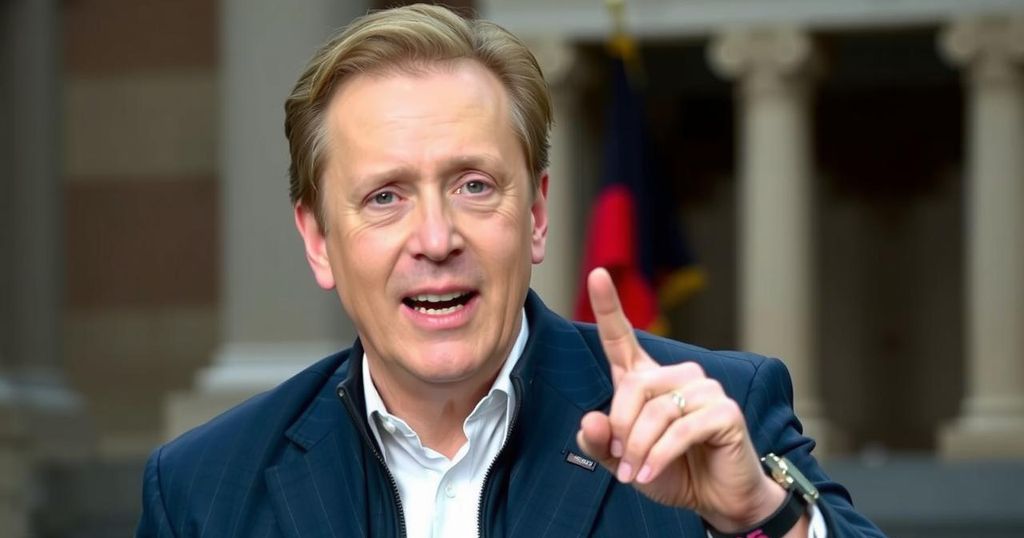Elon Musk Endorses German Far-Right Party AfD in Controversial Livestream
Elon Musk livestreamed an interview with Alice Weidel, co-leader of the AfD, endorsing the party ahead of Germany’s elections. Their discussion included topics such as high taxes, immigration, and energy policies, adding to concerns about foreign influence on German politics and raising alarms across Europe regarding the implications of such endorsements.
On January 9, 2025, Elon Musk leveraged his social media platform X to conduct a high-profile livestream interview with Alice Weidel, the co-leader of Germany’s far-right Alternative for Germany (AfD). During their conversation, Musk endorsed the AfD and encouraged viewers to support the party, claiming that Germany’s future depended on it. He and Weidel concurred on several topics, including taxation, immigration, and energy policies, with Musk suggesting that Weidel’s perspectives were “common sense” and reasonable. The initiative raises significant concerns regarding foreign influence on politics, especially given Musk’s prior involvement in the U.S. elections, as observers worry about the implications of such exchanges for European democracies.
Musk articulated his view that Germany is facing dire economic challenges under the current government, urging voters to consider the AfD as a viable alternative, even though the party has been scrutinized for its extremist positions. As the upcoming election approaches, the AfD has seen an increase in popularity, reflecting broader discontent with the status quo. This interview, which attracted over 200,000 viewers, underscores a broader trend where extreme right-wing parties are gaining traction across Europe, challenging the mainstream political landscape.
The Alternative for Germany (AfD) has steadily gained prominence since its founding in 2013, transforming from a party focused on eurozone bailout opposition to a significant force in German politics, especially after the refugee crisis of 2015. The AfD’s increasing support can be attributed to public discontent with the current coalition government led by Chancellor Olaf Scholz and skepticism towards Germany’s commitments to the European Union and NATO. Meanwhile, Elon Musk, a notable public figure and CEO of Tesla and SpaceX, has involved himself in political discourse both in the U.S. and abroad, using the platform of X to express his views and potentially shape political narratives.
In conclusion, Elon Musk’s livestream with Alice Weidel signifies not only a confluence of technology and political commentary but also raises critical questions about the influence of media moguls in shaping electoral outcomes. As the AfD prepares for the upcoming national election in Germany, Musk’s endorsement could have significant ramifications for the party and the broader European political climate. The ongoing scrutiny by regulatory bodies highlights the tension between free speech and the responsibility of social media platforms in managing political content.
Original Source: apnews.com




Post Comment